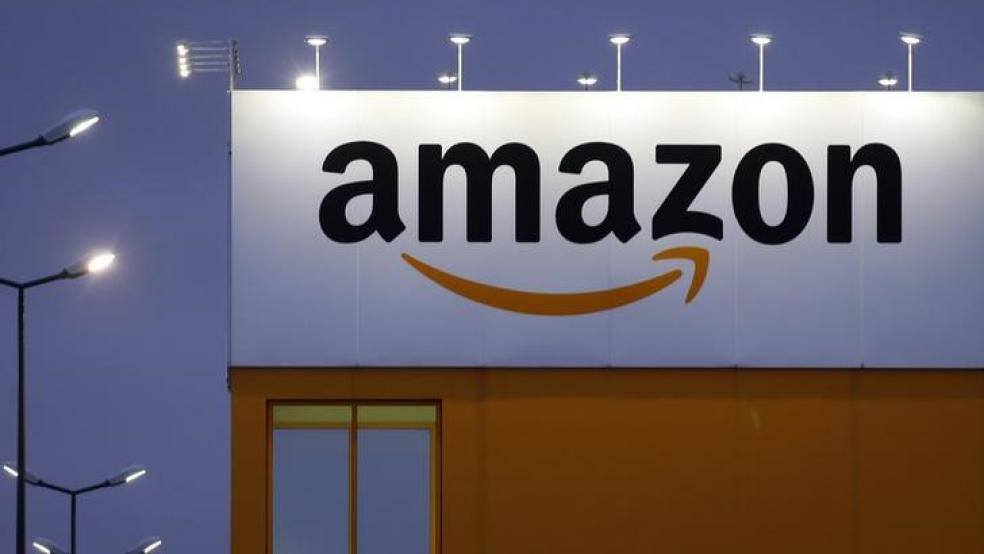Amazon recently announced plans to open a second world headquarters, and with the company asking for bids by October 19, more than 100 cities are climbing over each other, shouting “Take my money!” They shouldn’t. It’s time to end the self-destructive subsidy arms race among our cities and states.
And the conclusion of a real arms race can be our guide. Ronald Reagan, the quintessential cold warrior, took a bold step toward disarmament thirty-five springs ago, calling for what became the Strategic Arms Reduction (or “START”) Treaty that eliminated 80 percent of the world’s strategic nuclear weapons. Mutual disarmament not only made the world a safer place, it tempered an increasingly costly arms race that benefited no one.
Much like the Cold War arms race, there is an enormous cost to the mutually destructive spending by cities and states: We’re wasting $70 billion annually on corporate handouts rather than supporting genuine public goods and services or lowering tax rates for everyone. These incentives take many forms: cash payments, subsidies disguised as tax relief, targeted tax privileges, or in-kind gifts such as land, water or even factories. Adding insult to injury, these corporate privileges can throttle the productivity and dynamism of the American economy.
Mississippi fired the first shots when it began offering incentives to favored firms in the 1930s. The state remains the poorest in the union. But that hasn’t deterred others from piling into this self-destructive conflict. And lately it has been heating up. In addition to the Amazon arms race, this summer Wisconsin legislators approved one of the largest targeted incentives in U.S. history, agreeing to pay Foxconn Technology Group $3 billion over the next 15 years in return for building a liquid crystal display plant in the state.
The academic research is exceedingly clear: Targeted incentives do not benefit the communities that offer them. The biggest winners in this competition between governments are state-jumping companies and the politicians who lavish them with taxpayer money.
One reason such incentives fail to deliver for the public is their costs: In lieu of its $3 billion gift to one firm, Wisconsin could have cut its corporate income tax rate — paid by thousands of Wisconsin companies — by 21 percent. Subsidies encourage waste and bad decisions, leading firms to gamble public money on risky ventures that they wouldn’t otherwise pursue. They also motivate firms to court policymakers rather than consumers. And they protect established companies from competition, limiting economic growth and entrepreneurial dynamism.
Though corporate handouts make no economic sense, they make political sense. The primary beneficiaries are few in number and highly politically organized. A politician can stand in front of a subsidized factory, cut a ribbon and take credit for all the jobs created there, whether they would have been created with or without the subsidy. What the politicians rarely tell you — and what the public never sees — are the jobs destroyed by the taxes that fund these subsides.
Some economic development officials understand this, wishing there was a way out of this vicious cycle. Sean O’Byrne, an economic development official in Kansas City, told The New York Times that “It sounds like I’m talking myself out of a job, but there ought to be a law against what I’m doing.” Similarly, San Jose Mayor Sam Liccardo is refusing to play the game with Amazon. He thinks “cutting special deals with individual companies isn’t the right strategy.” But how can they resist it? Policymakers are in a Catch-22. Forswearing subsidies is like unilaterally disarming in a Cold War — it would be political suicide. Most, like Los Angeles Mayor Eric Garcetti, “welcome the opportunity to compete for this remarkable investment” in Amazon.
That is why we need an Economic START Treaty — an interstate compact in which states agree to mutually disarm in the subsidy war.
States would agree that all firms within their borders face the same tax burden. No targeted privileges or punishments. States could better prioritize the interests of the people without the leverage that these companies currently have over them. More importantly, a no-subsidies treaty would enshrine equal treatment under the law and encourage states to compete by simply offering the best tax and regulatory environments for all firms.
If the world’s superpowers were able to step back from the brink of annihilation and save their citizens billions of dollars in defense spending, surely U.S. states can agree to mutually halt the subsidy war. A Subsidy Termination Agreement to Return Tax dollars would be a good START.
Matthew Mitchell is a senior research fellow and Michael Farren is a research fellow with the Mercatus Center at George Mason University’s Study of American Capitalism.





